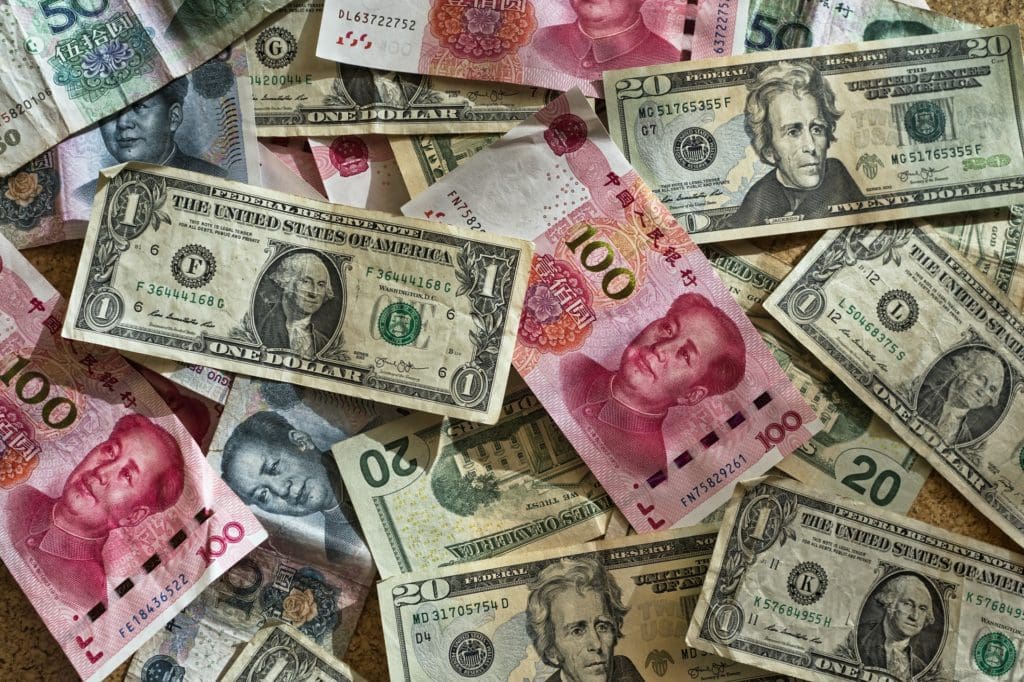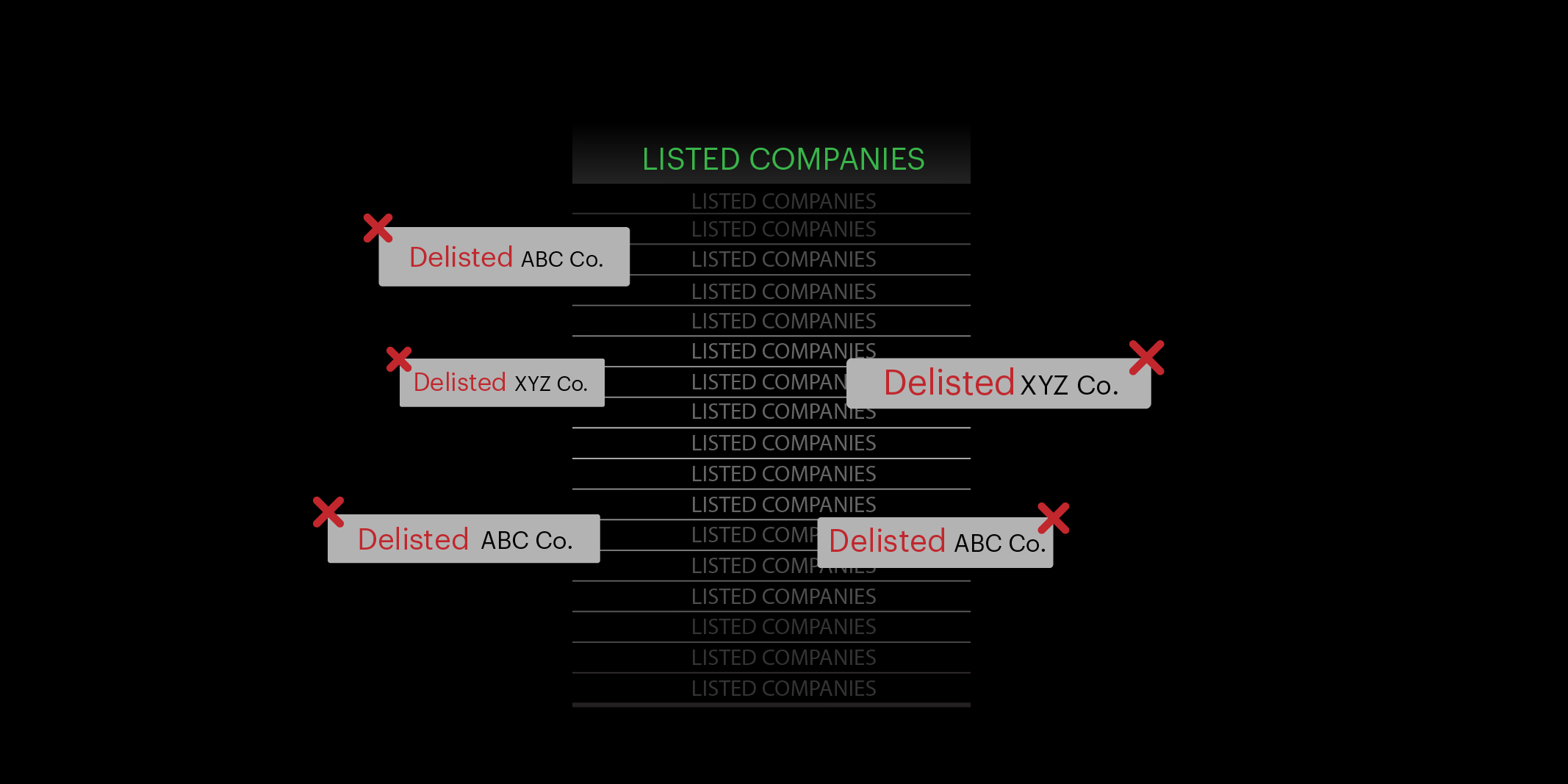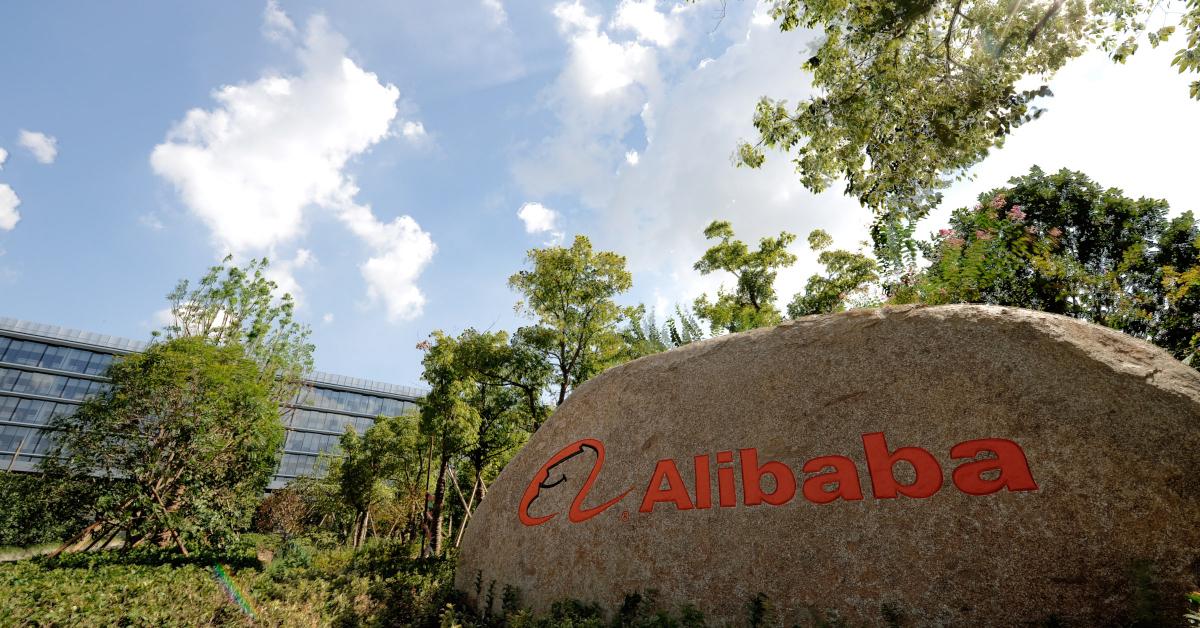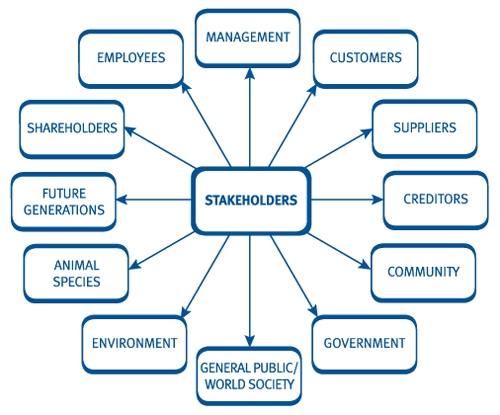Didi's move could mark the first in a wave of Chinese delistings from the U.S. Securities and Exchange Commission on Thursday announced its final plan for putting in place a new law that mandates foreign companies open their books to U.S. scrutiny or risk being kicked off the NYSE and Nasdaq within three years. Didi's delisting comes at the behest of Chinese regulators, who had long expressed concern that going public in the U.S. could risk exposing its vast troves of data to foreign powers.
Despite regulatory unease, the firm pushed ahead with its IPO in June, a move that Beijing regarded as a challenge to its authority, Bloomberg News has reported. The government reacted swiftly, announcing a cybersecurity probe into the firm days after its debut and taking its services off domestic app stores. Since then, authorities have weighed unprecedented penalties for the company, including a forced delisting. People with knowledge of the matter said last week that Beijing has directed management to come up with a plan to withdraw from the NYSE.
Chinese ride-sharing giant DiDi has been caught in Chinese regulators' crosshairs since it launched its starcrossed $4.4 billion U.S. DiDi finally announced last Friday its plans to delist from the New York Stock Exchange and relist in Hong Kong. The company's departure from the U.S. could make it the test case in a transition to a tougher data security oversight regime that could shape how Chinese tech giants conduct their businesses in the future. The US Securities and Exchange Commission has been calling on Chinese firms listed in the US to be more transparent with their books. Yesterday, the SEC said that Chinese companies need to reveal whether they are owned or controlled by a Chinese government entity, which could hastenthe "decoupling" of Chinese stocks and the US markets.
China has not given the SEC access to local audits of firms listed in the US due to national security concerns, which has long been seen as a major risk to US investor interests. If China still has national security concerns about DiDi, then China might reject its bid to relist in Hong Kong and force it to relist its shares on a mainland exchange that foreign investors can't access as easily. If that happens, DiDi might backtrack and try to take itself private at a discount -- which would be the worst-case scenario for U.S. investors who bought the stock at its IPO price. In the financial markets, the term "delisting" refers to the removal of a stock's shares from an exchange. But a delisting event doesn't necessarily mean that a company's shares stop trading altogether, because many delisted stocks continue to trade over-the-counter . "Didi's plan to delist in the United States and the listing of Hong Kong stocks I believe will have an obvious impact on location decisions for large technology stocks' future listings.
When a delisting occurs, it typically results in shareholders losing all of their investment in a particular stock unless they sell their shares before the delisting occurs. However, if a company is delisted and investors do not tender their shares, some stocks can be traded on the over-the-counter market. A local retail investor is warning about the risks of buying shares in Chinese companies listed on US stock exchanges following the delisting of a major firm. The announcement, which comes less than six months after DiDi's initial public offering , shouldn't surprise investors. Instead of a simple privatization from New York, Didi is opting to seek a listing on the Hong Kong Stock Exchange first.
The move will ensure that its American depositary shares will be "convertible into freely tradable shares of the Company on another internationally recognized stock exchange," according to its statement. The firm is planning to file for the Hong Kong listing around March, people with knowledge of the matter told Bloomberg News on Friday, asking not to be identified as the plans haven't been made public. The entire process could take three to six months to complete, First Shanghai Securities analyst Linus Yip said. The US government, which sees China as the greatest economic, political and military rival, has been putting pressure of its own on Chinese ties.
It has forced some state-controlled Chinese companies in delist their US shares. On Thursday, the US Securities and Exchange Commission adopted rules that would require reluctant Chinese companies listed in the United States to further open their books to American accounting firms or get kicked off its stock exchanges. The company announced the decision yesterday (Dec. 2), and said it will ensure its American depositary shares can be converted into "freely tradable shares" on another international stock exchange. It also said it has started pursuing a listing on the Hong Kong Stock Exchange.
The firm didn't give a reason for the delisting, or a time frame for the Hong Kong listing. The American government, which sees China as the greatest economic, political and military rival, has been putting pressure of its own on Chinese ties. It has forced some state-controlled Chinese companies in delist their U.S. shares. Securities and Exchange Commission adopted rules that would require reluctant Chinese companies listed in the United States to further open their books to American accounting firms or get kicked off its stock exchanges.
They can sell earlier if they wish to; Didi shares ended down 22.1% on Friday as many investors chose to cash out. On 4 July 2021, the Cyberspace Administration of China ordered app stores to remove DiDi, after citing violations on the company's collection and usage of personal information. As a result, DiDi stopped registering new users and agreed that it would make changes to comply with rules and protect users' rights. By September 2015, Didi Kuaidi had obtained 80% market share in private car hailing services and 99% of the taxis market share. The same month, Didi Kuaidi announced the launch of a rebrand process, including a plan to rename itself "Didi Chuxing".
Following are reactions to ride-hailing giant Didi Global's decision to delist from the New York stock exchange and pursue a listing in Hong Kong, succumbing to pressure from Chinese regulators concerned about data security. According to a press release, Didi announced ADR shares "will be convertible into freely tradable shares" in Hong Kong. However, for retail investors, the delisting and relisting could be problematic as many brokerages don't offer access to the HKEX. – Following are reactions to ride-hailing giant Didi Global's decision to delist from the New York stock exchange and pursue a listing in Hong Kong, succumbing to pressure from Chinese regulators concerned about data security.
Stocks are also delisted when a company decides to return to being a private rather than publicly held company. What is unusual is for a company, such as Didi, to delist from one exchange and relist on another . It is more common for a company to list its shares on multiple stock exchanges around the world, making its stock available for trading in both New York and Hong Kong, for example. There has been a rising tide of delistings among Chinese companies traded in the US amid growing bilateral tensions and toughening regulatory scrutiny from both sides. For most companies to delist from major exchanges, privatization would be offered by controlling shareholders to buy back shares from investors at a premium.
What Does Delisting Mean For Shareholders Securities and Exchange Commission finalized rules that would allow it to delist non-US companies that refuse to open their books to the U.S. regulators. China has for years rejected U.S. audits of its firms, citing national security concerns. This adds a new layer of protection for investors in markets overseen by the SEC.
Companies can become involuntarily delisted by the exchange if they fail to maintain certain standards. In the case of DiDi, this move appears to remove regulatory hurdles. Officials at China's Securities Regulatory Commission have resisted the U.S. Securities and Exchange Commission's information disclosure requirements, which could reveal potentially sensitive market information. Didi went ahead with the listing and within a week, the Cyberspace Administration of China, China's top internet regulator, ordered the main Didi app to be taken down pending a cybersecurity review.
Days later, the CAC ordered the removal from app stores of an additional 25 apps owned by Didi Global Inc. Even if those issues are addressed, the months-long probe into Didi has likely already taken a toll. President Xi Jinping's campaign to achieve "common prosperity" has also heaped pressure on platform companies like Didi to offer better wages and benefits to its army of drivers. Agencies including the antitrust watchdog and transport ministry on Tuesday published a set of wide-ranging guidelines for the ride-hailing industry that will require firms to strengthen social insurance while adopting "reasonable" commissions.
Consequently, it tends to attract companies that are more current with the release of their financial statements. But in either case, whether a stock drops down to the OTCBB or the pink sheets, it invariably suffers a decline in investor confidence after hemorrhaging the trust of the major exchange it once traded on. And if the company remains delisted beyond a short time period, institutional investors and investment banking analysts will likely cease researching the stock altogether. In the event of a stock's delisting from New York, investors could exchange their U.S.-listed shares for the Hong Kong-listed ones. Not all U.S.-listed Chinese companies are eligible for secondary listings in Hong Kong, Morgan Stanley analysts noted.
In some cases, investors may also be given an option to exchange their delisted American shares for shares in the company that are traded in another market. For example, if a Chinese company had a dual listing in Hong Kong and the U.S., the investor might be able to exchange his or her American-listed shares for the Hong Kong-listed shares. As the Financial Times put it, Xi Jinping and Senator Rubio are now in agreement – in favor of a dissolution of many of the financial linkages that have developed over the last two decades between the Chinese private sector and Wall Street.
Indeed, just this week, we learn that ByteDance – another Chinese tech giant with global reach – has bent the knee to Beijing on this very point, and "postponed" its plans for a U.S. listing. Across the broad China-Tech landscape there is a general cooling down of animal spirits. Many of the "founders" have seen what happened to Jack Ma, and are stepping aside, lowering their public profiles. The Financial Cold War, which has been brewing for a while, was openly declared some months ago, neither in China nor in New York, but in Washington D.C. – when both houses of Congress passed unanimously the Holding Foreign Companies Accountable Act. This law requires, among other things, that all foreign firms listed on U.S. stock exchanges need to comply with the audit review process overseen by the Public Company Accounting Standards Board .
This agency was created by the Sarbanes-Oxley Act of 2002, and all U.S. public companies are required to comply, as are companies in almost every other country that trade in New York. China has said it will absolutely refuse to allow its companies to cooperate. They are the only country in the world that has taken this position. This is the only way that Didi can survive, and this is maybe a good thing for the investors in the U.S. market.
There are other issues related to Didi in addition to the data security. Didi also embedded financial services on their platform, they withheld the payment to the drivers, charge high fees for drivers, make loans with high interest rates etc. And the inherent problems of the share-riding due to the fact there is no appropriate regulation of the bad behavior of the drivers. The delisting was announced a few weeks before the six-month lock-up expires and major investors can exit their positions.
It also came a day after amendments to the Holding Foreign Companies Accountable Act were adopted by the US Securities and Exchange Commission . These will require, among other things, companies to reveal to the SEC whether they are owned or controlled by any foreign government, and to declare the names of any Chinese Communist Party officials who are members of its board of directors. In less than a year since its US initial public offering in June, Chinese ride-hailing group Didi Chuxing announced on Chinese blogging website, Weibo, its plans todelistfrom New York as well as preparation to reissue its shares in Hong Kong. The announcement on December 3 follows months of regulatory scrutiny from Beijing that has seen Didi's market value be wiped out by more thanhalf, and the launch of a probe into its collection of personal information. The Didi delisting comes as U.S. regulators move to tighten the rules around foreign companies planning to list stocks on American exchanges. However, we should recall that when U.S. regulators forced China's top telecom companies to delist their shares amid national security concerns earlier this year, they also forbade them from shifting to OTC exchanges.
They also barred U.S. citizens from holding the Hong Kong-based shares. The regulations so far range from data security reviews to industry-specific restrictions on the use of the variable interest entity structure. A VIE creates a listing through an offshore shell company, preventing investors in the U.S.-listed stock from having majority voting rights over the business.
In the case of any delisting, it is unlikely that your investment will completely disappear. There will be warning signs and there will be ample time for you to sell your shares even if you have to do so at a significant loss. I hope that no investor would ever have to experience such a scenario as it would most likely result in a losing trade, but it is part and parcel of investing. SHANGHAI – Chinese ride-hailing giant Didi Global said on Friday it will start work on delisting from the New York stock exchange and begin pursuing a listing in Hong Kong after obtaining the approval of its board. In July 2015, Didi Kuaidi completed a US$2 billion fundraising round, bringing the company's cash reserves to over US$3.5 billion; the same month, Didi Kuaidi was reported to get 80.2% market share in car hire services. The July 2015 fundraise is ranked as the world's largest single fundraising round by any private company, as well as the largest fundraising round for a Chinese mobile internet company at that time.
Generally speaking, investors and traders can protect themselves from potential delistings by trading high-quality companies, and avoiding companies with poor reputations. But as illustrated by DiDi and Luckin Coffee, unexpected things do happen in the market. Didi Chuxing, a $39 billion company that is China's answer to Uber, said Friday that it would delist its shares from the New York Stock Exchange. Just six months ago, Didi was a Wall Street darling, raising billions of dollars from US pension funds and international investors in a splashy New York initial public offering. This potential will allow investors to make a rather quick buck, with share currently trading at around $6.50 per share, which means that a privatization plan at around $14.00 per share represents the potential of a 115% gain.
When it comes to the trade arbitrage opportunity that this is, even if the company goes private at $10.00 per share banking on Chinese agencies shielding them from US-based lawsuits, it represents a big premium to today's share price. According to market rules, the company can submit a voluntary delisting application to the New York exchange as soon as Dec 13 and withdraw its shares from the market 10 days later. "Didi's Hong Kong listing path will no doubt to be a bumpy ride, and its US delisting will also face multiple challenges from investors and regulators," said a private equity fund manager. Didi said Dec 3 that its board of directors approved its delisting plan. DiDi probably believes that delisting its U.S. shares and relisting them in Hong Kong will appease China's regulators and enable it to relaunch its apps. But how will this abrupt move affect U.S. investors, many of whom are probably holding shares of a battered stock that has plummeted 50% below its IPO price?
Didi was founded in 2012 as a taxi-hailing app and has expanded into other ride-hailing options including private cars and buses. It is also investing in electric cars, artificial intelligence, and other technology development. Didi Global Inc's top shareholders include Japanese multinational SoftBank Group Corp. and U.S.-based ride-hailing app Uber, which sold its China business to Didi in 2016. Didi also needs to appease regulatory concerns over its data security. The company had previously put forth a number of a number of proposals to appease the powerful Cybersecurity Administration of China, including ceding management of its data to a private third party, Bloomberg reported in August.
It's uncertain how such an arrangement, if pursued, would impact Didi's access to the data, which is crucial to helping the firm orchestrate 25 million rides a day between some 400 million riders and drivers. Didi has dropped 52% from post-IPO peak, wiping out about $42 billion of market value. SoftBank Group Corp., the largest minority shareholder in Didi, last month reported a record loss at its Vision Fund unit, in part because of the stock's plunge. Some shareholders may use the delisting as an excuse to exit, while certain retail investors may not be equipped to hold Hong Kong shares. Didi Chuxing, a $39 billion company that is China's answer to Uber, said on Friday that it would delist its shares from the New York Stock Exchange.
Just six months ago, Didi was a Wall Street darling, raising billions of dollars from American pension funds and international investors in a splashy New York initial public offering. Regulators said in July they would step up scrutiny of Chinese tech companies with shares traded on foreign exchanges. Entrepreneurs who are largely shut out of the state-run financial system have raised billions of dollars abroad.
But Beijing is tightening control over that and promising to give them more ways to raise money in China. Didi's one-sentence announcement gave no explanation but share prices of Didi and other tech companies including e-commerce giant Alibaba Group have sunk after they were hit by data-security and anti-monopoly crackdowns. As a result, individual investors have less data on which to base their investment decisions, often causing such stocks to drop off their radar screens.
Not surprisingly, a delisted company's liquidity and trading volume typically plummet as a result. "You also have a very emboldened cyber security regulator in China, that is now saying basically that it doesn't want certain types of companies to necessarily be listed overseas. There's been a lot of language around how a company like DiDi Global which is one of the world's biggest ride hailing companies could represent a national security threat in some of the data it has access to. Once the risk of delisting arises, investors and traders usually have a range of available choices for dealing with this type of situation. At the top of the list, of course, is exiting all positions in a delisted company. Shortly after its $4.4 billion initial public offering in the United States in late June, Chinese regulators banned Didi from app stores in China, saying it broke data privacy laws and posed cybersecurity risks.
Didi's shares have lost more than afifthin value since the delisting news first surfaced at the end November. According to Ritter, while some shareholders may look to sell, other retail investors simply may not be able to hold Hong Kong shares. Didi's delisting speaks volumes for the sector and adds to the many intractable challenges facing Chinese technology companies. Back in late 2020, Chinese regulators unexpectedly scrapped the $30 billion IPO of Ant Group, Alibaba's fintech arm. In the months that followed, several of the country's largest tech companies paid antitrust fines, whilesupportfor the clampdown became more widely expressed.


























































